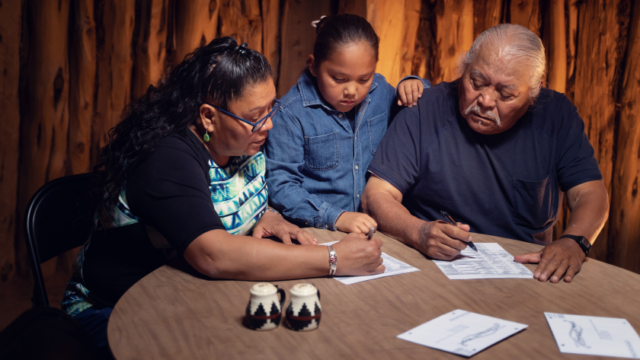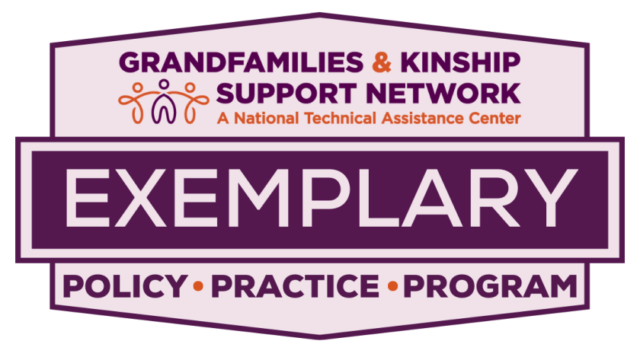
A Network Monthly Resource: February 2023
When a child comes into your care, there are so many practical needs to deal with right away. Food, clothing, school, a place to sleep. You may also have concerns about legal issues and the paperwork you need to access supports for the child. Here are some issues caregivers often think about, and where to go for help.
If a related or kin child comes into your care through the foster care system, a caseworker should be assigned to your family to help the child access services and supports, like school enrollment and Medicaid.
If the child comes into your care in some other way – maybe a parent left them with you – you will likely need some type of legal relationship to the child. Unlike parents, you do not have an automatic legal relationship to that child. Your choices vary based on where you and the child live, but the section below provides basics on three general paths.
A local lawyer, support group, kinship navigator, or other relevant professional can help you figure out what’s best for you and your family. To find these local resources, consult the GrandFacts fact sheet for your state or territory.
Care & Custody Options for Kinship/Grandfamilies
- “Informal” Arrangement: Collect documents that show your relationship to the child you’re raising (birth certificates, family records, tax returns, school records, health care records, benefits you receive for the child). This paperwork may help you to show that you’re their caregiver when needed. Also, some states have health and educational consent forms that should allow you to access services.
- Power of Attorney or Designation of Parental Authority: If possible, ask the parents to sign and notarize a legal document that gives you permission to make decisions concerning the child. These documents usually expire in six months to a year.
- Legal Relationships Granted by Courts:
- Legal Custody/Guardianship: Options vary depending on your state or territory. They may include temporary, limited, and permanent legal custody/guardianship.
- Adoption: With this option, either the court terminates the parents’ rights or the parents surrender their rights. The caregiver becomes the legal parent forever.
Common Questions
It’s common to have questions when a child joins your family, and in the weeks and months that follow. Here are some questions that often come up for caregivers.
- How do I leave the door open for the child’s parents to care for them? Caregivers walk a fine line between hoping parents will be able to care for their child and planning to continue raising them. Use the information in the box above to help think through the arrangement that might best meet the child’s current and future needs.
- What are Guardians ad Litem (GALs)? A judge may appoint a GAL when deciding a legal custody dispute. GALs may or may not be lawyers. They represent the child and help determine what is in “the best interest of the child.” Just like a child’s attorney or a Court Appointed Special Advocate (CASA), keep in mind that the GAL is not working for you. They will be limited in how they can help you as the caregiver. If possible, consider finding your own lawyer.
- I am caring for my kin child in foster care. The parents are unable to parent. The child and I want to exit foster care into a supported, permanent relationship. What are our options? Your typical options are to adopt the child or to get legal custody or guardianship. Because the child is exiting foster care, these options may come with ongoing, monthly financial assistance. Discuss your options and what resources are available with the foster care caseworker. Also, see these national and state-specific charts comparing the options.
Technical Assistance Tips for Professionals Working with Kinship/Grandfamilies:
Helping families manage legal issues is challenging, and laws vary around the country. Share this resource with families. Work with a local lawyer to tailor this PowerPoint training template to your area or use this recorded webinar for trainings.
Download this resource to share with kinship/grandfamilies.


